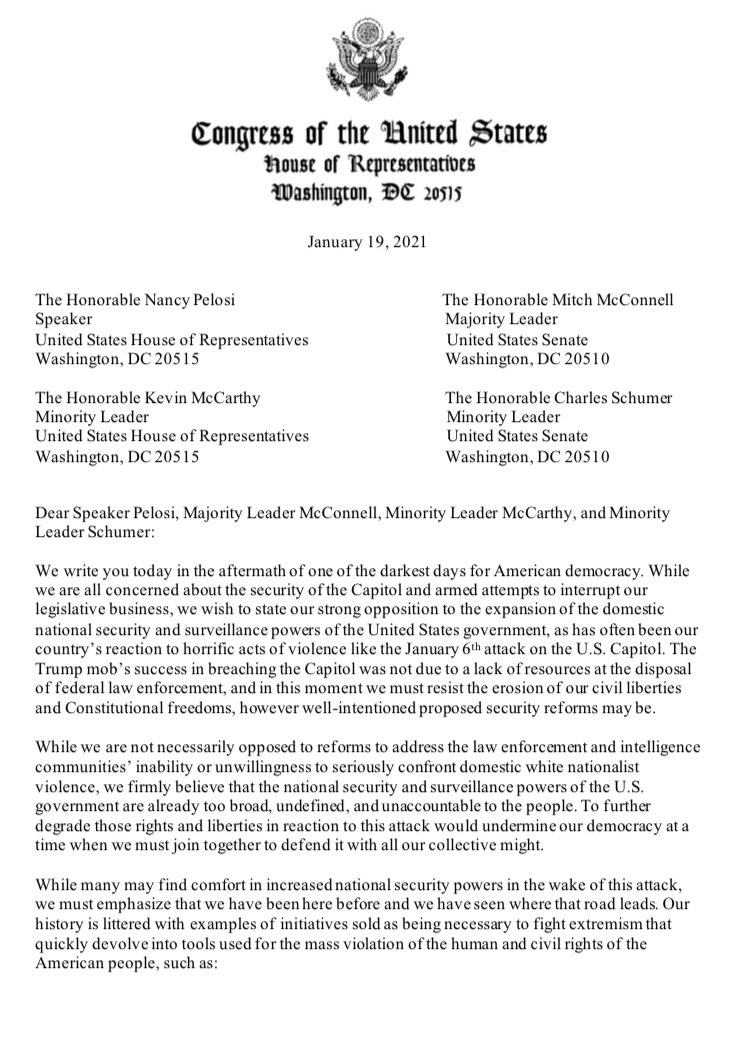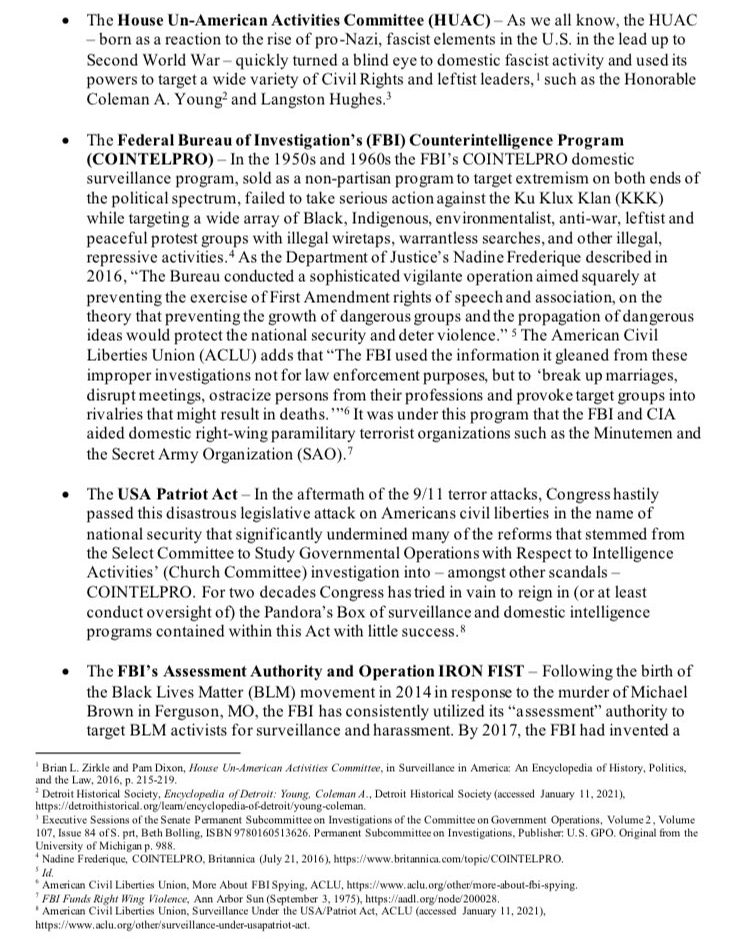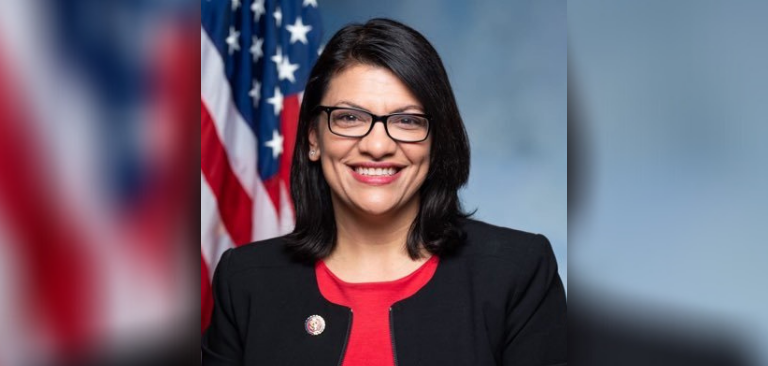Congresswoman Rashida Tlaib has announced her opposition to proposals that would give even more power to the US national security apparatus in the wake of the Capitol Hill unrest earlier in the month.
In a letter, Tlaib said that she was leading the effort to prevent this, and noted that initiatives of this kind often result in “the erosion of Americans’ civil liberties.”


She called for “reactionary demands” to be rejected, linking to an announcement saying the congresswoman was jointed by nine colleagues, who, in a letter to Congressional leadership, argue that the reason protesters – whom she referred to as “Trump’s mob” – were able to enter Senate was not because federal law enforcement does not have enough powers as is.
They also criticized the current national security and technology surveillance powers as being “too broad.”
The topic was rife earlier in the week after the attempts to broaden surveillance powers to a new, domestic version of the “war on terror” – harkening back to a set of policy changes introduced in the wake of the 9/11 attacks, which many say have greatly eroded civil liberties by intensifying spying and mass surveillance.
While not mentioned by Tlaib, the wave of online censorship that came after the riots, and the use of strong and dramatic rhetoric, like the talk of “domestic terrorism, sedition, and treason” gave way for more civil liberties to be curtailed.
And those who want this new legislation to be introduced and are earnestly promoting it in the media and on social media, make no effort in hiding it should be modeled after the first “war on terror” and laws like the Patriot Act.
The new war on terror is undoubtedly on its way, mass surveillance critic Glenn Geenwald writes. “The only thing that is in doubt is how much opposition they will encounter from those who value basic civic rights more than the fears of one another being deliberately cultivated within us.”













